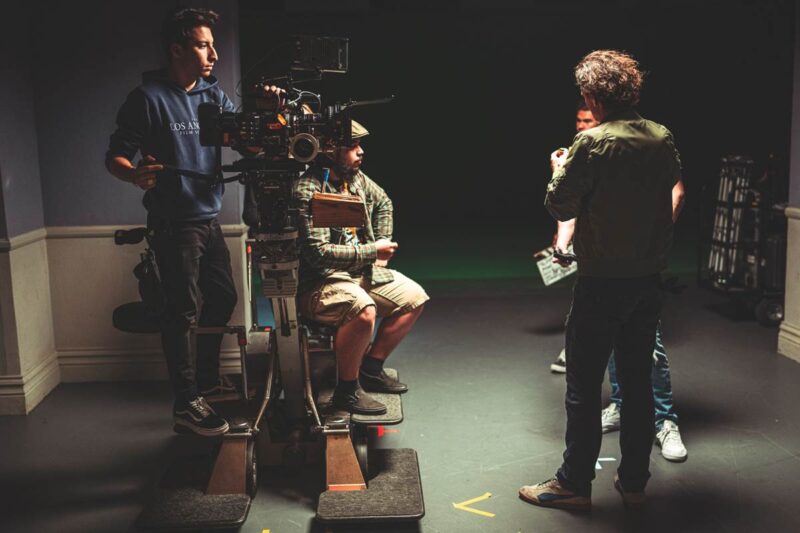When it comes to pursuing a career in filmmaking, aspiring creators often find themselves at a crossroads: should they enroll in a prestigious film school, investing time and money into a structured program, or take the plunge into the vast sea of self-taught learning? This choice can feel daunting, as each path comes with its own set of advantages and challenges. Film school offers the allure of mentorship from industry veterans, access to invaluable resources, and a network of peers who share your passion.
Yet, the self-taught route presents a unique freedom—an open canvas on which you can craft your own learning experience, guided by your interests and the wealth of online resources available at your fingertips. In this article, we’ll explore the nuances of each approach, diving into the benefits and drawbacks that come with both film education and self-directed study.
Ultimately, the question remains: which path is right for you? Your journey in the world of film starts here.
Understanding Film School: Benefits and Opportunities

Film school offers a unique blend of structured learning and creative exploration, making it an attractive option for aspiring filmmakers. Students engage in hands-on projects, collaborate with peers, and receive mentorship from industry professionals, providing invaluable insights that self-taught learners might miss.
Beyond technical skills, film school fosters a deep understanding of storytelling, cinematography, and sound design, turning theoretical knowledge into practical expertise. Additionally, networking opportunities abound; students connect with fellow creatives and industry insiders, often leading to internships and job placements that can jumpstart their careers.
Yet, while the traditional path offers a comprehensive foundation, it’s important to weigh these benefits against the rising prevalence of self-taught filmmakers who blaze new trails through innovative approaches and digital resources. Each route presents its own set of rewards—what suits you best depends on your individual aspirations and learning style.
The Self-Taught Route: Embracing Independence

The self-taught route in filmmaking is a journey steeped in independence and personal discovery. It offers an exhilarating blend of freedom and challenge, allowing aspiring filmmakers to forge their own paths without the confines of traditional academic structures.
Imagine diving into a sea of online tutorials, YouTube masterclasses, and countless forums where creativity flows unfiltered. Here, you can experiment with your unique visions—perhaps shooting a short film with nothing but your smartphone and a couple of willing friends. Each triumph and setback carves out invaluable lessons that shape your artistic identity.
While the absence of formal guidance can feel overwhelming, it’s this very unpredictability that breeds innovation and resilience. Ultimately, embracing the self-taught route empowers you not just as a filmmaker, but as a storyteller who navigates their own narrative in the vast landscape of cinema.
Cost Considerations: Weighing Financial Investments

When delving into the financial aspects of pursuing a film education, aspiring filmmakers must navigate a labyrinth of costs and potential returns. Film schools often demand hefty tuition fees, which can range from several thousand to an eye-watering six figures, depending on the program and its prestige.
This is not merely a price tag but an investment in access to state-of-the-art equipment, experienced instructors, and industry connections—elements that can launch a career. Conversely, the self-taught route offers a tantalizing allure of low upfront costs.
However, this approach often requires a considerable investment of time and resources—think books, online courses, and, most critically, practical experience, which may come at the price of missed opportunities or stunted growth. Each path undoubtedly reflects different financial commitments, not only in terms of money spent but also in the invaluable time invested, ultimately shaping the trajectory of one’s filmmaking career.
The question then becomes: how much are you willing to invest in your passion, and what do you hope to gain in return?
Conclusion
In conclusion, the decision between attending a formal film school and pursuing a self-taught path ultimately depends on your individual circumstances, learning style, and career aspirations. Film schools, like the esteemed Movie and Film Academy, offer structured programs that provide valuable industry connections and expert guidance. However, self-taught filmmakers can equally thrive by leveraging online resources, networking, and hands-on experience.
The key is to remain dedicated and adaptable, constantly honing your craft regardless of the route you choose. Whether you opt for the classroom or the independent journey, both paths can lead to success in the vibrant and competitive world of filmmaking.
What matters most is your passion, creativity, and commitment to telling compelling stories that resonate with audiences.


